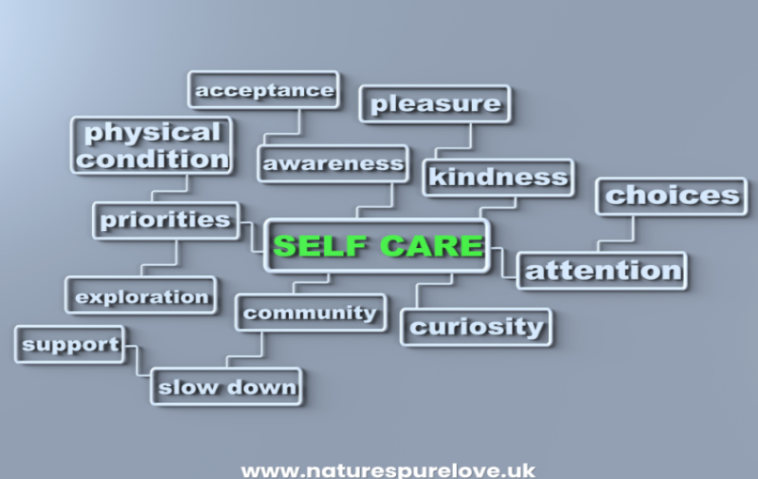The Art of Prioritising Your Well-being in a Busy World: Unveiling the Importance of Self-Care
The art of self-care
In today's fast-paced and demanding world, taking care of ourselves often becomes secondary. We are constantly bombarded with time and energy-consuming obligations, making it easy to neglect our own needs. Nevertheless, prioritising self-care is crucial for maintaining physical, mental, and emotional well-being.
This blog post delves into the art of self-care, highlighting its importance and offering practical strategies to incorporate it into a busy lifestyle.
Understanding the Essence of Self-Care
In this section, we will delve into the concept of self-care and its significance. We will explore the various dimensions of self-care, encompassing the physical, mental, emotional, and spiritual aspects. Additionally, we will acknowledge the consequences of neglecting self-care and the impact it can have on overall well-being. Lastly, we will gain insight into the vital role played by the mind-body connection in self-care.
Defining self-care:
Self-care refers to any intentional activity undertaken to promote physical, mental, and emotional health. It can encompass a wide range of practices, from taking a relaxing bath to spending time in nature or practising meditation.
Importance of self-care:
Self-care is vital as it enables us to attend to our needs and replenish our resources. Neglecting self-care can lead to increased levels of stress, anxiety, and burnout. It may also hinder our ability to cope with challenges and maintain healthy relationships.
Dimensions of self-care:
Self-care encompasses four primary dimensions: physical, mental, emotional, and spiritual.
Physical self-care involves activities that enhance physical health, such as maintaining a nutritious diet, getting sufficient sleep, and engaging in regular mindful movement
Mental self-care encompasses practices that promote mental well-being, including relaxation techniques, mindfulness Movement(exercises), and quality time spent with loved ones.
Emotional self-care comprises activities aimed at fostering emotional health, such as journaling, expressing emotions, and seeking support from others.
Spiritual self-care involves practices that connect us with our sense of purpose and meaning, such as spending time in nature, praying, or meditating.
Consequences of neglecting self-care:
Failure to prioritise self-care can result in:
- Increased stress levels
- Heightened anxiety
- Burnout
- Decreased energy
- Disrupted sleep patterns
- Difficulties in coping with challenges
- Strained relationships
The mind-body connection:
Given the interconnectedness of the mind and body, it is crucial to care for both. Neglecting physical health can have adverse effects on mental well-being, and neglecting mental health can negatively impact physical health.
The Advantages of Making Self-Care a Priority
Prioritising self-care yields numerous benefits, including:
- Improved physical health
- Increased energy and vitality
- Enhanced mental and emotional well-being
- Resilience to stress and burnout
- Strengthened relationships
- Heightened productivity and overall life satisfaction
Improved physical health:
Prioritising self-care entails making healthier choices that contribute to physical well-being, such as maintaining a nutritious diet, getting adequate sleep, and engaging in regular mindful movement.
Increased energy and vitality:
Self-care allows for better energy management, resulting in improved vitality. By effectively managing stress and providing our bodies with the necessary nutrients and rest, we can experience heightened energy levels.
Enhanced mental and emotional well-being:
Prioritising self-care promotes improved mental and emotional well-being. By effectively managing stress and engaging in self-care practices, we can better cope with stress and experience more positive emotions.
Resilience to stress and burnout:
When self-care is prioritised, resilience to stress and burnout is built. This is accomplished by acquiring effective stress management techniques and developing a broader array of resources to draw upon during overwhelming times.
Strengthened relationships:
Prioritising self-care allows for increased energy and patience, enhancing our relationships. By being present and engaged in our interactions, we can forge stronger connections.
Heightened productivity and overall life satisfaction:
Taking care of ourselves positively impacts productivity and overall life satisfaction. By sharpening our focus, increasing motivation, and achieving personal goals, we can experience greater satisfaction in life.
Identifying Your Self-Care Needs
The initial step in prioritising self-care involves identifying your personal needs. Reflect upon the areas of your life where you feel stressed, anxious, or overwhelmed. Additionally, consider activities that bring you joy and make you feel good. By identifying your needs, you can develop a tailored self-care plan.
Ask yourself the following questions to identify your self-care needs:
Physical health needs:
- Do I need to adopt a healthier diet?
- Do I need to ensure adequate sleep?
Mental health needs:
- Do I need to practise relaxation techniques?
- Do I need to spend more time in nature or journal?
Emotional health needs:
- Do I need to express my feelings more?
- Do I need to spend more time with loved ones or seek professional help?
Spiritual health needs:
- Do I need to spend more time in nature, pray, or meditate?
Practical Self-Care Strategies for a Busy Lifestyle
Once you have identified your self-care needs, you can begin developing a self-care plan. Here are some practical strategies to incorporate self-care into your busy lifestyle:
Allocate time for self-care every day:
- Even a short period, such as 15 minutes, dedicated to an activity you enjoy can make a difference.
Set realistic self-care goals:
- Begin with achievable goals and gradually increase the time allocated to self-care, avoiding overwhelming yourself.
Make self-care a priority:
- Treat your self-care time as an important commitment, similar to any other appointment. This may entail saying no to other obligations when necessary.
Explore enjoyable self-care activities:
- There are a multitude of ways to take care of yourself. Discover activities that bring you joy and make you feel good.
Seek support when needed:
- If you struggle to prioritise self-care, don't hesitate to ask for assistance from friends, family members, or therapists.

Self-Care Beyond the Basics
Once you have mastered the fundamentals of self-care, you can explore more creative and advanced practices. Consider the following ideas:
Overcoming Barriers to Effective Self-Care
Various barriers can hinder the prioritisation of self-care. Here are some tips for overcoming these obstacles:
Challenge negative thoughts:
- Counter negative beliefs about self-care, such as viewing it as selfish or claiming lack of time. Remind yourself of its importance and that you deserve self-care.
Cultivate self-care as a habit:
- Similar to any other habit, self
-care requires practice. Begin by setting aside a small amount of time each day and gradually increase it as you become more comfortable.
Find a self-care buddy:
- Having a supportive companion can significantly impact your self-care journey. Seek a friend, family member, or therapist willing to check in with you and provide motivation.
Embrace experimentation:
- Do not fear trying new self-care activities. Explore various options to discover what works best for you.
Practise patience:
- Developing healthy self-care habits takes time. If you encounter setbacks, do not be discouraged. Simply pick yourself up and start anew.
Conclusion
Prioritising Effective self-care is not a selfish act but an essential practice for maintaining overall well-being in today's busy world. By embracing the art of self-care and implementing practical strategies into your daily life, you can nurture yourself, reduce stress, and create a healthier and more balanced lifestyle. Remember, self-care is an ongoing journey, and by investing in yourself, you can show up as your best self in all aspects of life.
Additional tips for prioritising Effective self-care includes:
Establish boundaries with others:
- Learn to say no to requests that may overwhelm you or encroach on your self-care time.
Take breaks throughout the day:
- Even brief moments of relaxation and recharge away from work or commitments can be beneficial.
Delegate tasks:
- If your workload is excessive, do not hesitate to assign responsibilities to others. This will free up time for self-care.
Allocate resources for self-care in your budget:
- Make self-care a financial priority by setting aside funds for activities such as massages, yoga classes, or other self-care practices.
Seek a supportive community:
- Surround yourself with individuals who understand the importance of self-care and encourage your well-being.
I hope this blog post inspires you to prioritise self-care in your life. Remember, you deserve to take care of yourself!
FAQs
Q: What are some common barriers to Effective self-care?
A: Some common barriers to self-care include:
Lack of time: Many people feel like they don't have enough time to take care of themselves.
Lack of money:Some self-care activities can be expensive, which can be a barrier for people with limited financial resources.
Negative thoughts about self-care: Some people may believe that self-care is selfish or that they don't deserve to take care of themselves.
Prioritising other people's needs over their own: Some people may find it difficult to prioritise their own needs, especially if they are used to putting the needs of others first.
Q: How can I overcome barriers to Effective self-care?
A: There are a number of things you can do to overcome barriers to self-care, including:
*Challenge negative thoughts about self-care: If you find yourself thinking that self-care is selfish or that you don't have time for it, challenge these thoughts. Remind yourself that self-care is essential for your well-being and that you deserve to take care of yourself.
- Make self-care a habit: Just like any other habit, self-care takes practice. Start by setting aside a small amount of time each day for self-care and gradually increase the amount of time as you get more comfortable.
- Find a self-care buddy: Having someone to support you in your self-care journey can make a big difference. Find a friend, family member, or therapist who is willing to check in with you and help you stay motivated.
- Don't be afraid to experiment: There are many different ways to take care of yourself. Don't be afraid to try new things and find what works best for you.
- Be patient with yourself: It takes time to develop healthy self-care habits. Don't get discouraged if you slip up sometimes. Just pick yourself up and start again.
If you're ready to start prioritising self-care in your life, here are a few things you can do:
- Set aside some time each day for self-care. Even if it's just for 15 minutes, make sure to schedule some time for yourself to do something that you enjoy.
- Find self-care activities that you enjoy. There are many different ways to take care of yourself. Find activities that you enjoy and that make you feel good.
- Don't be afraid to ask for help. If you're struggling to prioritise self-care, don't be afraid to ask for help from Holistic healthcare specialist.
Remember, you deserve to take care of yourself!

Book a consultation
Ready to Prioritise Your Well-being? Contact Us for Effective Self-Care Plans!











